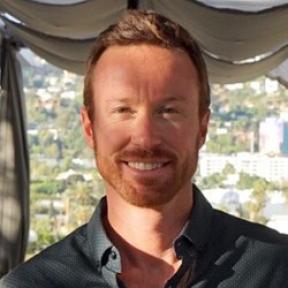VOICES OF CUHF

KEVIN GALLAGHER
CUHF Core Team and National Convener
The Council on the Uncertain Human Future (CUHF) is an emergent process that responds at multiple scales to the demands of world-historic dislocation, uncertainty, and change.
Most intimately and simply, for the individual, the CUHF process can disrupt the denial, isolation, and unprocessed grief that too often leads to chronic anxiety, paralysis, and despair, while offering access to essential communal wisdom, creative insight and even nervous system co-regulation. It is an antidote to the opacity that clouds our ever more uncertain future.
Widening the focus, the Council nurtures relationships within its host communities and organizations, supporting their resilience and growing their capacity to adapt to accelerating change. This occurs in part through disruption of existing socio-emotional norms, particularly those that privilege denial, delay, and obfuscation over radical honesty, and that marginalize emotional intelligence and embodied wisdom in favor of analytic rationality.
In creating space for new ways of being and sources of wisdom, the Council liberates communal capacities for insight, creativity, and adaptability necessary to respond to our global predicament.
At still deeper levels, the Council experience addresses our most fundamental needs as human beings. Uniquely in the animal kingdom, our species combines extreme individuality with extreme sociality. The irresistible lure of dopamine and our constantly rewiring brains lead to ever more divergent experiences and understandings across individuals, yet survival’s demands for close kinship within the bands in which humanity evolved simultaneously requires cohesion between individuals.
This fundamental human need for belonging, connection, and solidarity, described by Peter Sterling as “the evolutionary basis of the sacred,” is denied by modern culture. The Council ameliorates that costly failure.
Harnessing the power of a small group, shared attentional focus, and behavioral synchrony, the Council process can transform even the most difficult of experiences into an opportunity for greater interpersonal coherence and integration. The result is an experience of heightened collective emotions that builds trust, strengthens bonds, fosters a shared sensation of connection to the sacred, and buoys collective capacity to face the literally and figuratively unimaginable.
Perhaps most profoundly, the Council engages in deep culture repair that offers a concrete alternative to the dysfunctional dominant paradigm, in effect building a bridge of practice between an extractive present and a regenerative future.
Both its form – a circle – and the simple guidelines that shape its function embody a collaborative, radical, non-hierarchical equality that offers a clear counterpoint to the competition, control, and domination inherent to the structures and processes of global industrial culture. The outcomes of the Council process – an encounter with collective wisdom and witness to creative possibility – demonstrate the dynamic, emergent nature of complex adaptive systems that stands in stark contradiction to the linear, mechanistic assumptions of the materialist worldview that has waged such effective war on life in all its forms.
The Council experience rattles the crumbling foundation of a defunct dualistic paradigm, one that demands our choice between mind and body, thought and feeling, matter and energy, self and other, individual and community, human and nature, the mundane and the sacred.
The Council experience denies the legitimacy of that paradigm and its assumptions, offering instead a vision of the world rooted in interdependence.
It manifests the wisdom of ancient teachings while making good on the century-old promise of quantum theory (and the more recent urgings of complexity theory, network theory, biology, neurology, and genetics).

